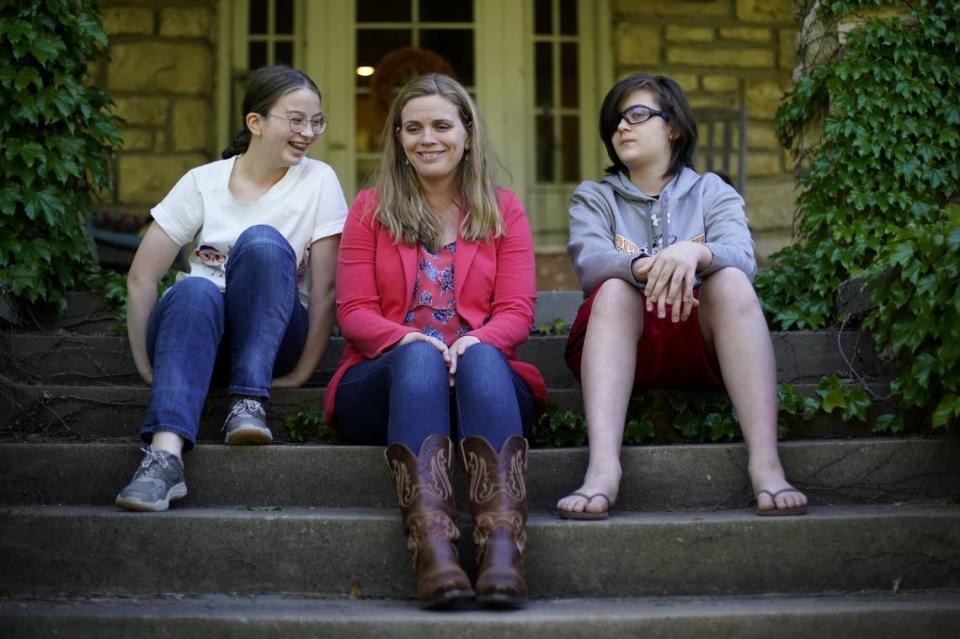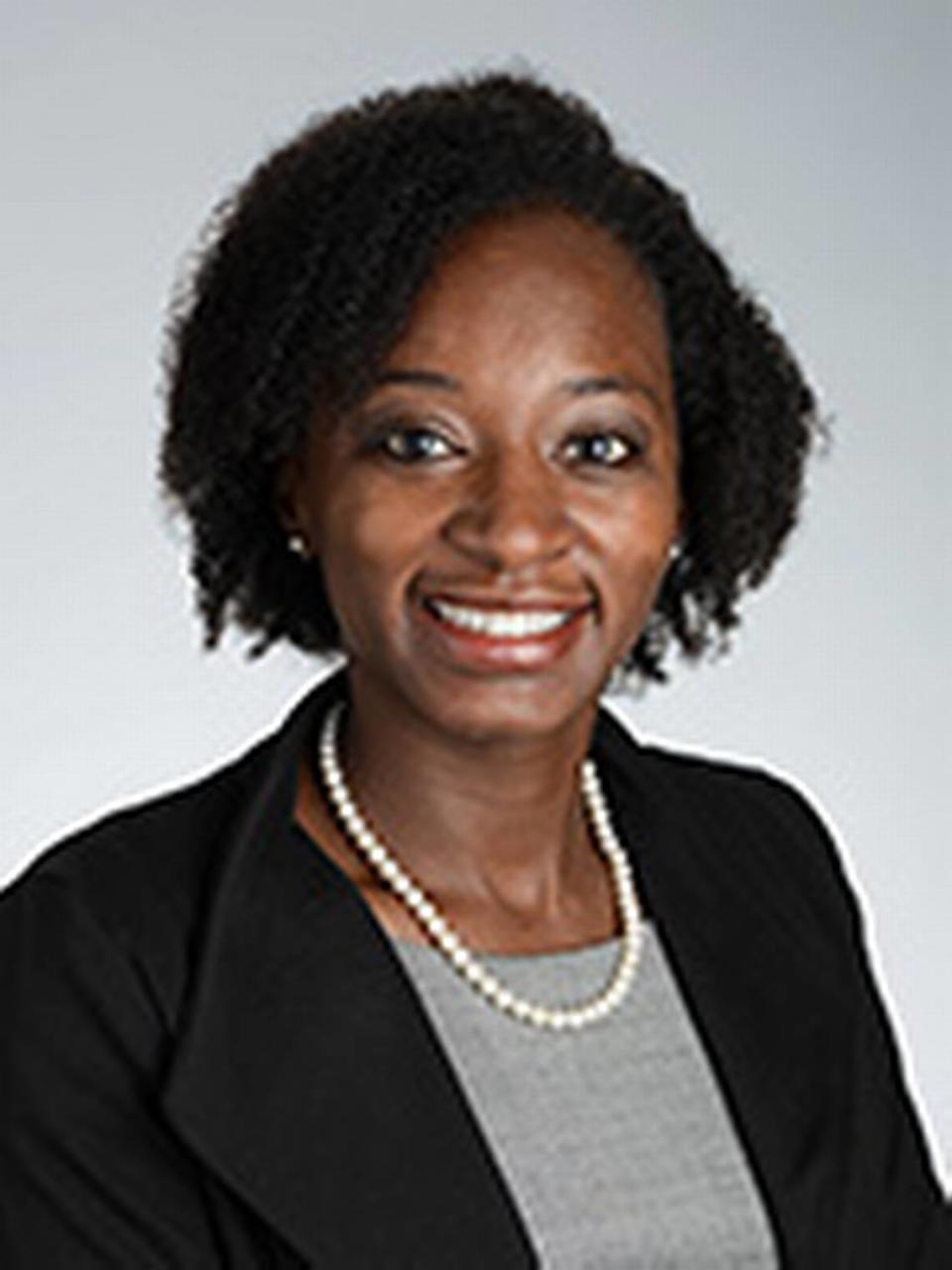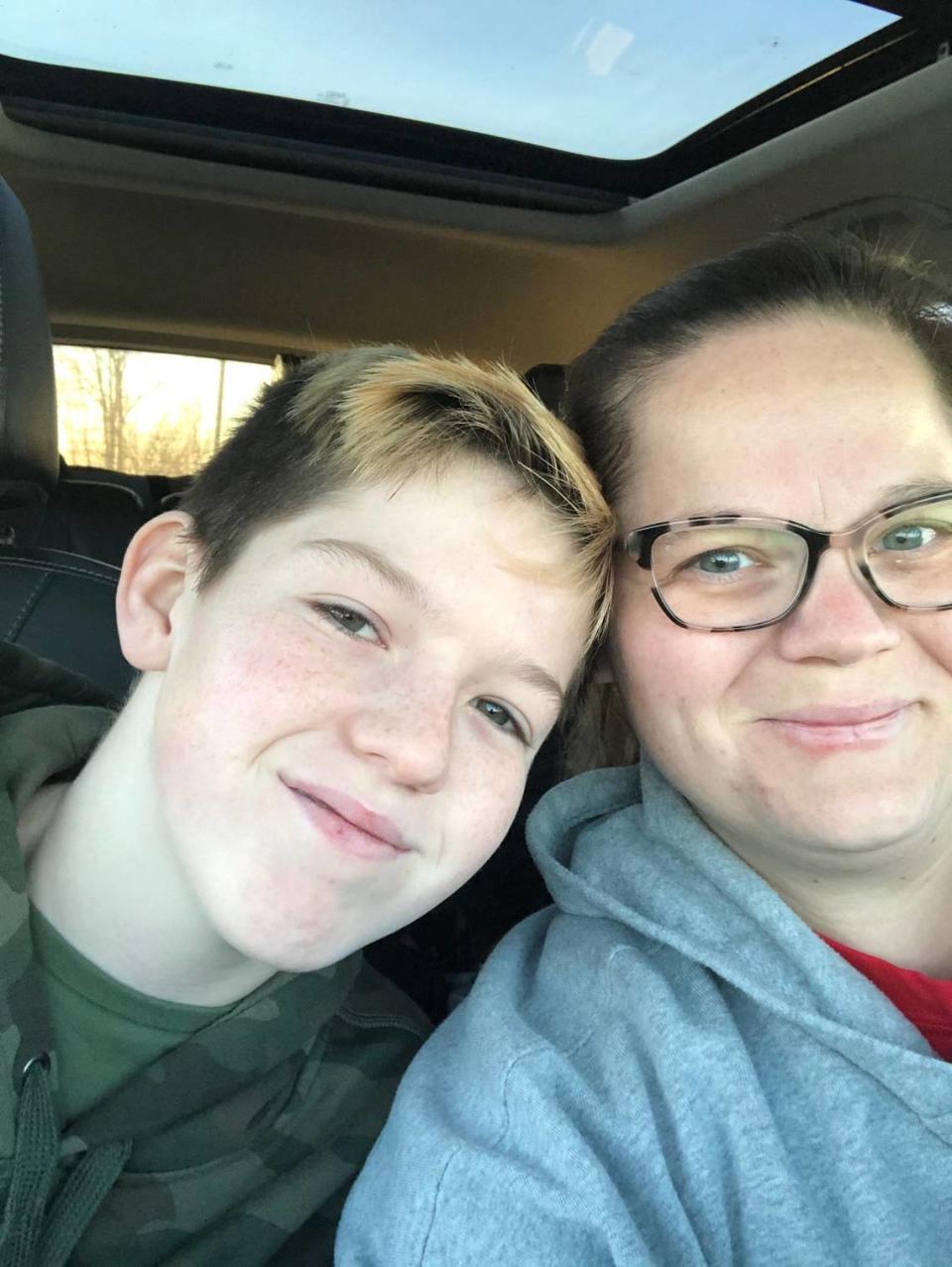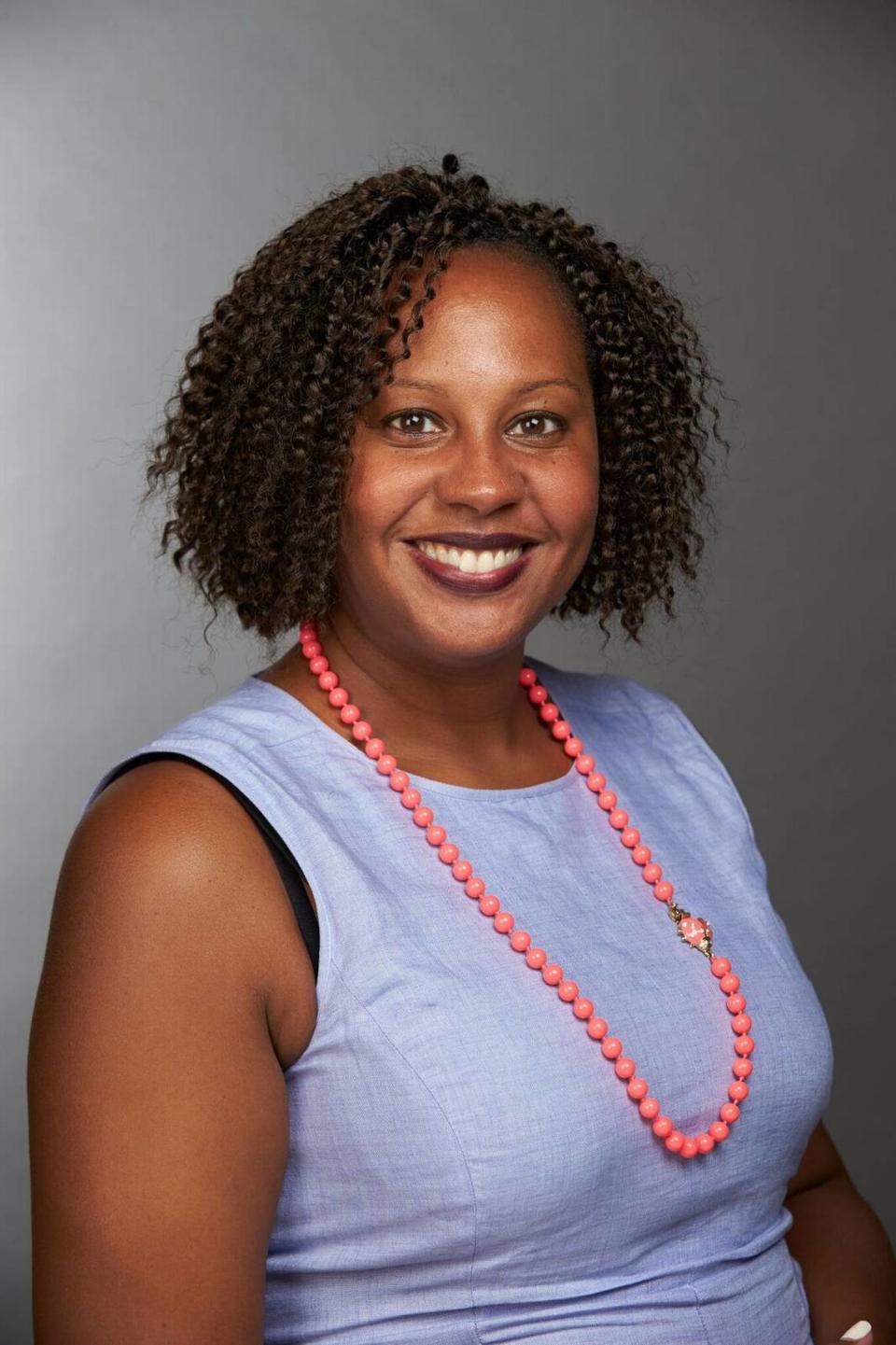Younger kids can now get COVID vaccine. Will too few Kansas City parents let them?
Now that children ages 12 to 15 have the green light to get COVID-19 shots, parents like Heather Ousley just have one question.
When can they get it for their kids?
“As soon as one is available we’re going to pop in,” said Ousley, who has two children eligible now for the vaccine. “In my dream world we’re able to get in on Saturday and celebrate with doughnuts and ice cream.”
But Ousley is in the minority. Just 3 in 10 parents of children in that age group in the U.S. say they will get their child vaccinated as soon as possible, according to a Kaiser Family Foundation poll last month. And nearly a quarter said they will definitely not get their child vaccinated.
In the Kansas City area, health experts blame misinformation on social media. And they say emotions can cloud decisions that should be based on science and informed advice.
“I think as an adult I can approach it in this really practical sense, guided by science,” said Dr. Danielle Johnson, psychologist at The University of Kansas Health System.
“And then when you involve your child, you have emotions that flood into that situation that kind of make that water not as clear. It gets quite murky because of our emotions, which we should have because we love them to death and we want the best for them.”
Kristina Shineman, a special education paraprofessional in the Fort Osage school district, gets that, even though she herself can’t wait to get her entire family vaccinated.
“Even people I know that are vaccinated are saying they’re not going to vaccinate their kids until there’s more information out there,” said Shineman, who lives in Independence.
“I think it’s generally they don’t think there’s enough information, like it hasn’t been tested long enough or they don’t know what the long-term side effects are going to be.
“And then, I think it’s different as an adult to take that risk. To put your kids at risk seems to be where the hesitation lies.”

The feds say yes
On Wednesday, an independent advisory committee to the Centers for Disease Control and Prevention recommended giving the Pfizer-BioNTech COVID-19 vaccine to 12- to 15-year-olds, advice the CDC formally adopted later in the day.
And on Monday, the Food and Drug Administration extended its emergency use authorization for the vaccine to be given to that age group, deeming it safe and effective.
Soon after the CDC gave the go-ahead, the Missouri Department of Health and Senior Services said vaccines for anyone 12 and older are available now from any provider that offers the Pfizer vaccine.
And the Johnson County Department of Health and Environment announced that it would begin offering the vaccine to anyone 12 and older on Thursday. Appointments can be made at jocogov.org/covid-19-vaccine.
Pediatric organizations and health officials across the country see the move as a necessary step in helping control the spread of COVID-19. Until now, only people 16 and older were eligible to be vaccinated.
“I encourage all Missouri families to schedule their children for the vaccine as soon as possible,” Dr. Kristin Sohl, president of the Missouri Chapter of the American Academy of Pediatrics, said in a statement Wednesday.
Kids will receive the same amount of the vaccine as adults, in two shots given three weeks apart.
“By expanding the vaccine down to 12 now, we’ve opened up another … millions of people, patients, who can be vaccinated and by being vaccinated can help control the spread in the population,” Dr. Steve Lauer, a pediatrician with the University of Kansas Health System, said during a briefing Wednesday.
“So it’s as much to control the disease across our population as for those kids. The benefit is that it is going to help us get back to normal more quickly, help our kids get back to school and all the activities they need to be involved in.”
Ousley, who is president of the Shawnee Mission school board, was keeping close tabs on the Children’s Mercy website and making calls to the Hy-Vee pharmacy close to her house to pounce on any vaccine appointments for her kids.
Over the weekend she went on CNN to encourage parents to get their kids vaccinated, appearing with two of her children, son Samuel, 13, and daughter Elliannah, 15.
Samuel has a rare liver disease “but lives a normal life for a 13-year-old child. But the underlying anxiety that anything could impact his liver has been a huge stress,” during the pandemic, said Ousley, who lives in Merriam. “To have that worry taken off our plate … I can’t wait to go to a movie with our kids.”

Vaccine hesitancy
According to the Kaiser poll, one quarter of parents say they will wait a while to see how the vaccine is working, and 18% plan to get their child vaccinated if their school requires it.
Other parents reportedly want more information before they make a decision. Could there be side effects, immediate and long-term? How safe is it?
And, some adolescents themselves have questions, too, that their parents now must answer. One of those: Will the shot hurt?
“I have one parent in mind that was hesitant for their child to get it and their child is 12,” Johnson said.
“I think anything that’s new and different we always have questions. We should always ask questions about things we don’t know to get more information and make an informed decision.
“So I encourage parents, yes, have questions, have thoughts about this, let’s really flesh this out so you can make a really good decision for your family. I would hate for someone to have a question, not ever speak it, then make a choice and then feel bad about it after the fact.”
Shineman’s son, Austin Sinclair, a 13-year-old seventh-grader in the Fort Osage school district, probably knows more about COVID-19 vaccines than most teens — at least what it takes to run a vaccination clinic.
His grandmother has spent weeks setting up and running clinics in eastern Jackson County, including a large clinic at Independence Center shopping mall. Austin and his mom have volunteered there.
“He will be getting vaccinated as soon as it’s available,” Shineman said. “I have a younger child that is immunocompromised, so the decision for us was pretty easy.”
She would remind hesitant parents that “there are a lot of kids in schools that have illnesses that you don’t necessarily know about, so it’s important, if you can, to protect those that can’t be protected, like my daughter.”
She cried with relief when she got vaccinated, she said. Austin now being eligible “is just getting one more piece to the puzzle.”

Look for reputable sources
“I think there’s a variation of response around COVID vaccination in general, but especially when it comes to children and parents thinking about the safety of their children,” said Dr. Bridgette Jones, pediatrician at Children’s Mercy and associate professor, department of pediatrics at University of Missouri-Kansas City School of Medicine.
“I think there are definitely people out there that are very, very eager for their children to receive the vaccine as soon as possible because they know this is the best way to protect their child and their family and honestly for our entire community to protect everyone.
“I think there are people out there that also still have questions, and I think that’s understandable.”
She and Johnson advise parents to have conversations with their health care providers. Ousley and other moms say some parents get their information from social media, and from one another. It’s not always accurate, and some is purposefully misleading.
“I really think they’re soaking it up in their social networks, whether that’s social media or just neighbors. Parents are talking to parents,” said Johnson. “I think a lot of parents talk to their peer group and then rely on some post they saw on social media.
“And I always ask parents, and the teens I see, what’s the source? Someone posted it, does that make it true? And I use the analogy of I can make a photo in Photoshop and put it on the internet, does it make it true?”
Jones said parents should make sure that the information they’re basing decisions on comes from reputable sources, such as the CDC, children’s hospitals and pediatrician websites.
“I don’t even really like to use the world hesitancy that much, because I do think that for the most part, what I have found is that most people, once they are able to get most of their questions answered, they are a lot more open in considering the vaccine,” said Jones.
Jones’ own children, ages 10 and 7, are too young to be vaccinated for now. But they watch the news and listen to Mom talk about the vaccines, “and they often have questions as well,” she said.
“My kids have asked me, ‘Has this been tested in children? Are you going to give me a vaccine that hasn’t been tested in children?’”
Members of the public had similar questions for the CDC advisory panel on Wednesday, with some wondering why kids this age need to be vaccinated if their risk of becoming seriously ill from COVID-19 is relatively low.
The FDA declared the Pfizer vaccine safe based on testing of more than 2,000 volunteers ages 12 to 15 in the United States. Critics told the CDC panel there weren’t enough children studied to show whether there could be long-term effects down the road.
Eighteen of the kids who got the placebo shot developed COVID-19, while none who were fully vaccinated got it. The vaccinated children also developed higher levels of antibodies than those in young adults studied earlier.
The adolescents received the same dosage as adults and experienced similar side effects, namely sore arms, fevers, chills and aches.
“So with our current data we’re very confident that this vaccine is just as effective in children as adults, and it’s also been shown to be safe,” said Jones. “I think the thing that some people may not always realize is that studies have been done and are ongoing in children.”

Kids will ask questions
Jones said some parents worry about long-term harm of the vaccine. She compares it to other vaccines given to children, which have proven over the years to be safe and effective.
“And so relying on that history and knowing that for the many vaccines that we give, have we recognized any long-term effects from those vaccines? And the answer is generally no,” she said.
Parents whose children ask them questions about the vaccine should give them information based on facts, said Johnson.
“I don’t want kids to be shut down,” Johnson said. “Parents are the ultimate deciders. But I want you to have a conversation with your kiddos about any fears or concerns they have so your kiddo is not walking into the doctor’s office scared that something bad is going to happen because they don’t have all their questions answered.
“So take the time. Let your kid be more comfortable. I’m not going to say completely comfortable because most kids I know don’t like getting shots regardless of what’s inside of a needle.”
Johnson said she “bribes” her own grade-school-age children every year for their flu shots. They go to the doctor “with doughnuts in hand. They get their flu shot and as soon as they’re done they get a doughnut,” she said.
Maybe for adolescents, a Starbucks drink would work, she said, comparing it to incentives offered to adults who get vaccinated.
For Alexandra Strotheide’s family, the incentive for her 13-year-old son, Michael, to get vaccinated is a “return to some type of new normal, whatever that is.” Maybe take those summer vacations they had to put off last year?
“It wasn’t really a difficult decision for me personally,” said Strotheide, a consultant with a financial firm who lives in Overland Park. “We’re all vaccinated, everyone in his family. … We have spoken to his pediatrician who has been with him since he was a newborn, whom we very much trust.”
She did her own research too and wasn’t worried by anything she read. “For us, this is what’s best for our family,” she said.
“While I understand that people believe that young people are stronger and their immune systems are healthier, unfortunately with this virus there doesn’t seem to be a lot of rhyme or reason as to why one young person might get sicker than another.
“And the long-term effects that even young people … are experiencing with lungs and their organs … is more concerning to me than what the side effects are potentially with the vaccine.”
She said she won’t judge parents who choose not to vaccinate and has been bothered by how political anything related to the pandemic has become “instead of it just being about our health and what’s best for everyone overall. And I don’t want that to be what it is for our family.”
When she asked Michael Wednesday morning what he thought about getting vaccinated, he fessed up.
“I’m mostly just worried about hurting,” he said.
She told him it would feel like getting the flu shot.

